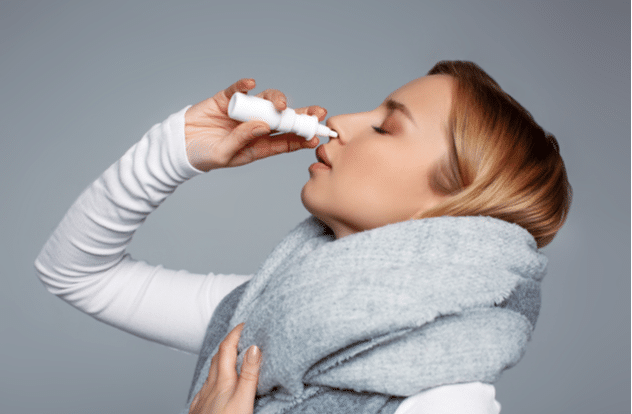
Springtime in New York. The cherry blossoms in Central Park. Azaleas setting their blooms by Eaglevale Arch. The tulips and daffodils poking through the soil after a long winter. And the endless billions of microscopic pollen grains floating through the air.
Uh oh, allergies.
Allergic rhinitis is the clinical term used by Dr. Volpi when he sees patients suffering from allergies. He uses different methods for helping patients get past their rhinitis.
What is allergic rhinitis?
Allergic rhinitis, commonly known as hay fever or just allergies, is an inflammation in the nose that occurs in people who have sensitivity to certain substances in the air called allergens. Allergic rhinitis is basically an overreaction by the body’s immune system to these allergens, causing nasal discharge and swelling. In addition to those issues, some people also develop sinus and ear infections with their allergies.
Two forms
Allergic rhinitis can be classified as either perennial or seasonal. In perennial allergic rhinitis, patients may have sensitivity to dust mites, animal dander, or other allergens that are present year-round. For instance, if a person has an allergic reaction to pet hair, if that person starts dating someone with a dog, for instance, he or she would develop rhinitis every time they visit that person’s apartment or house.
Seasonal allergic rhinitis is the sensitivity to various allergens that occur seasonally. The most prevalent of these is reaction to various pollens that are distributed by trees and other plants every year at the same time, usually spring and early summer.
What are some treatment options for allergic rhinitis?
Dr. Volpi may perform a skin prick test or a radioallergosorbent test to determine what allergens are causing the patient’s rhinitis. From there, he’ll develop a treatment plan. It may involve a combination of these treatments:
- Antihistamines
- Decongestants
- Eye drops
- Nasal sprays
- Allergy shots
- Prescription medication
Do you suffer with allergies every spring in the city? Call us at New York ENT, (212) 873-6036, and let Dr. Volpi isolate the specific allergen or allergens behind your allergy and then provide treatment to help you deal with it.



